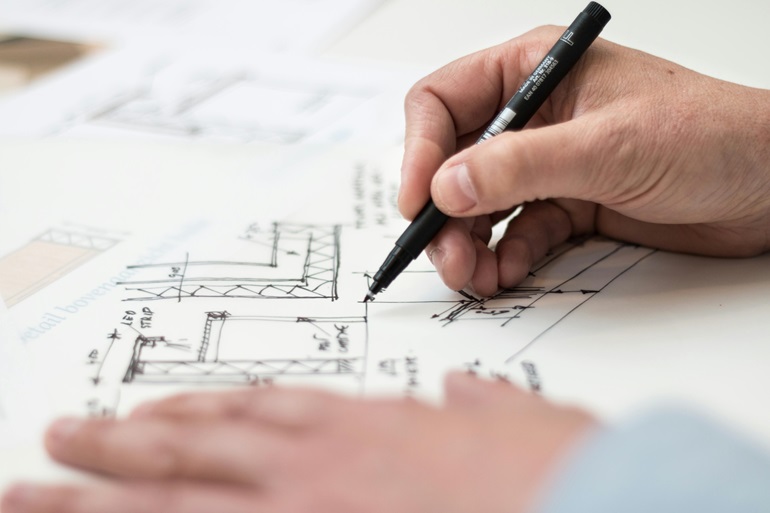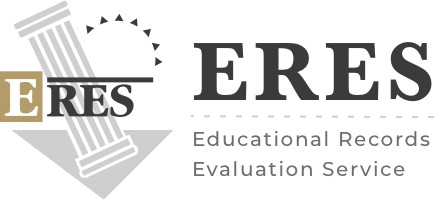Blog
Understanding Architectural Licensure for Non-U.S. Professionals

Are you a foreign architect?
Want to get licensed and practice in the U.S.?
We heard you…
Keeping up with the entire licensure process and submission of the document can be complex in the U.S. So, at ERES, we help you to provide the right knowledge to get through the path and preparation strategies so you can achieve your dream.
Let’s understand the architectural licensure in detail for non-U.S. Professionals -:
What is Architectural Licensure for Non-U.S. Professionals
Architectural Licensure for Non-U.S. Professionals is a formal process by which architects who received their training and licensing from other countries apart from the United States can practice architecture in the U.S.
Since architecture is a regulated profession in the U.S. if you’re a practicing architect you must possess an active license provided by a state board of examiners of architects.
For those individuals not already licensed in the United States, this usually involves –
Evaluation of academic certificates
Documentation of work experience
Clearing the Architect Registration Examination (ARE)
Note that, seeking an NCARB (National Council of Architectural Registration Boards) Certificate can make the process smoother and easier across multiple states.
How do I get an architect license in the USA?
Yes, foreign architects can work in the U.S. However, you must meet specific requirements, such as being licensed to practice architecture in the U.S.
According to the National Council of Architectural Registration Boards (NCARB), foreign architects who want to work in the US must have a visa to do so legally.
You can apply for several visas including an H-1B visa designed specifically for specialty occupations like architects.
To qualify for an H-1B visa, foreign architects must have a formal education in architecture from an accredited institution, a license to practice architecture in their home country, and can only be hired by a US employer.
The employer also has to prove that the purchase of the foreign architect’s services is warranted, both for the employer and the company.
Common Challenges for Non-U.S. Professionals
1. Licensing Requirements
Apart from the work visa, foreign architects are required to meet the licensing requirements of the state where they intend to practice. The requirements may vary from state to state and may include passing the Architect Registration Exam and stipulated work experience under a licensed architect.
2. Professional Organizations
Foreign architects can find job opportunities in America by joining professional organizations like the American Institute of Architects (AIA). They also support the opportunities for further education and training among professionals and other members.
3. Cultural Differences
If the architects are from different countries, they are likely to experience certain cultural barriers when engaging in projects within the US: code variations, design standards, and construction procedures. Foreign architects must familiarize themselves with these differences and adapt their approach accordingly.
4 Key Steps for Non-U.S. Architects
Step 1: Credential Evaluation
Get your foreign degree and experience authenticated by NCARB or a foreign degree evaluation service. If your degree is not NAAB-accredited, you can consider NCARB’s Education Alternative to meet certain requirements for certification.
Step 2: Verify Experience Through AXP
In case you have worked as an architect in another country, then it could be calculated towards meeting the AXP prerequisites. You may be asked to submit work examples, a summary of works done, and other information that NCARB may deem necessary.
Step 3: Prepare for the ARE
The ARE has six divisions, including Project Management, Building Systems, and Construction Documents. There are study materials, practice tests, and online courses that can assist you with preparations for the exam.
Step 4: Apply for Licensure
After NCARB certification and passing the ARE, you should apply for a state license through the state board of architecture.
Tips for a Smooth Transition to Architectural Licensure in the U.S.
Entering the architectural practice in the U.S. can sometimes be challenging depending on how the individual approaches the whole process and the resources available. Here are some tips to help ensure a smooth journey:
1. Leverage NCARB Resources
NCARB which stands for the National Council of Architectural Registration Boards is a major support for architects from other countries. You can review their guides and manuals - a breakdown of the licensure process and the guidelines for the Foreign Architect Path.
2. Join Professional Organizations
The American Institute of Architects (AIA) is just an example of organizations that provide much more than acknowledgment. They provide:
Networking Opportunities:
Sustain communication with other professionals, companies, and possible employers.Resources:
Obtain relevant industry magazines, training, and seminars to gain insight into the standards of architecture within the United States.Mentorship Programs:
Mentoring with architects helps you through the licensure and the overall career.3. Seek Mentors
Find architects who are successfully practicing in the U.S. They will help you with firsthand insights, decode strategies to adapt to the culture, and share tips on how to enhance your professional career.
4. Start Early
Always start early because the licensure process can be time-consuming as you may have to deal with document submissions, examinations, and credential evaluations.
The Final Words
Transitioning to architectural practice in the U.S. as a non-U.S. professional can be a daunting task but once you get through the NCARB certification process and other licensing requirements, you can work successfully as a licensed architect in the U.S.
Need professional assistance? You can always hire ERES.
Our experts will gather all the required documents, schedule exams, and help you with the end-to-end process so you can focus on what really matters.
Start Now
ERES
Educational Records Evaluation Service helps Non-US educated individuals to receive their US equivalences with our credential evaluation reports.
Services
Contact us
Tue - Fri: 10:00 to 16:00 ( PST )
4773 Mangels Blvd, Fairfield, CA 94534, USA.
© 2025 Educational Records Evaluation Service. All rights reserved.











